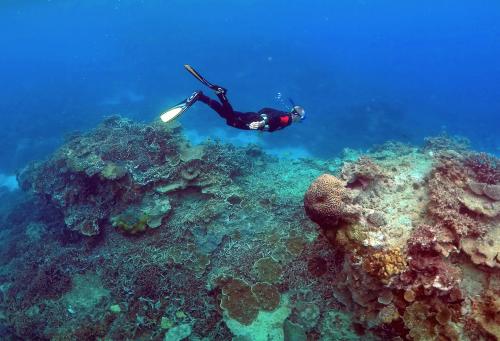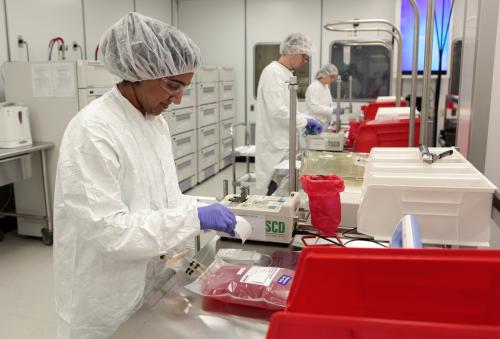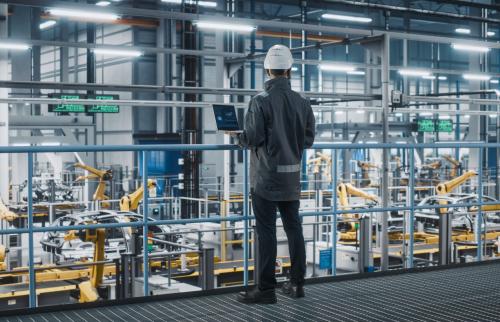The citizen science-driven movement of do-it-yourself synthetic biology is rapidly expanding worldwide. The movement has introduced innovative life science solutions, and is now slowly starting to contribute to the economy. However, the unregulated status of these groups and their lack of safety and ethics training raises concerns from governments and environmental groups. Do the risks associated with DIY biology outweigh its innovations?
The growth of DIY biology
In 2005, Rob Carlson wrote in his Wired article about the arrival of an era of “garbage biology”. Carlson wrote that a person could build a fully functional genetic engineering lab at home by spending as little as $1,000 on eBay. The same year, Carlson set up a garage lab where he continued working on projects previously started at the Molecular Sciences Institute in Berkeley.
Pioneered by Carlson, this so-called do-it-yourself biology, or DIYbio, is a rapidly growing socio-technological movement in which citizen scientists, biohackers, and other individuals come together to study the life sciences by applying similar scientific methods used by professional scientists. This DIYbio movement encourages openness in science, and practitioners can find many protocols and instructions online that can then be easily applied or adapted for new projects.
“Biohacking” refers to experimental exploitation of genetic material for any number of purposes. In 2010, the first official biohacker spaces opened across the U.S. and Canada. These spaces attracted like-minded individuals – who were willing to share or learn new skills – to reprogram or alter genetic code. Today in the U.S. there are over 50 DIYbio spaces with nearly 30,000 enthusiasts, followers, biohackers and citizen scientists working together to share their innovative life science solutions. The Canadian DIYbio ecosystem has around 12 active biohacker spaces with over 2,500 members. Meanwhile, there are around 60 DIYbio groups spread around Europe, nine groups in Oceania, 22 in Asia, 16 in Latin America, and a few in Africa.
SAFETY CONCERNS
Over the years, biotechnology startups have democratized life sciences by bringing inexpensive, semi-professional and portable labs to every bio-enthusiast. However, most DIY biologists have little or no formal training in safety and ethics.While the citizen science movement is rapidly expanding, governments, international institutions, and professional scientists worry about the associated safety risks.
National laws that are currently used to regulate synthetic biology are often fuzzy and outdated, designed years ago for genetically modified organisms. Synthetic biology requires more advanced regulations than those that were developed to address engineered crops; no one thought that gene editing would one day become a hobby. Certain countries such as Singapore are considering issuing licenses so that biohackers will have to pass ethics and safety tests or risk fines or jail.
While enforcing bioethics training is one solution, this growing global movement of homegrown biologists requires consolidated international approaches. Just like any fauna and flora, modified organisms don’t respect international boundaries and treaties, and a country that released such organisms could violate the United Nations Biological Weapons Convention if gene-altered organisms affect native species in the neighboring country. Many are concerned that the open-source nature of this movement can be used by terrorists to develop biological weapons. Zealous debate continues on a number of levels, however effective solution seems yet to be found.
DIYbio has provoked outrage among environmental groups. In March 2015, the UN Convention on Biological Diversity released a report discussing the implications of synthetic biology on biodiversity and small-scale agriculture. The growing movement of citizen biologists attracted the attention of the FBI and the Food and Drug Administration. Earlier this year, the FDA proposed regulations that would require any genetically-engineered organism to go through strict and lengthy regulatory trials to be approved. In Europe, the Federal Office for Consumer Protection and Food Safety of Germany issued a statement prohibiting the use of DIY synthetic biology and genetic engineering outside of designated and specialized facilities and research institutions. Abusers will be fined up to 50,000 euros.
Public policy should be designed to accommodate innovation and the economic growth offered by the DIYbio movement. However, public policy should also ensure the safe and ethical use of this technology so that it doesn’t end up in the wrong hands.






Commentary
Do-it-yourself biology shows safety risks of an open innovation movement
October 9, 2017